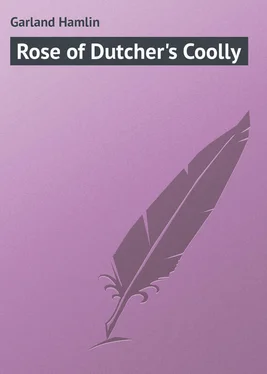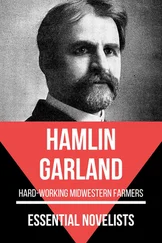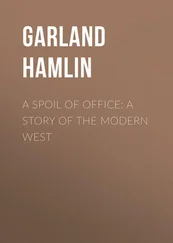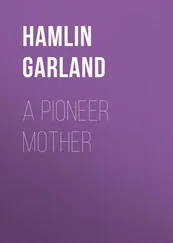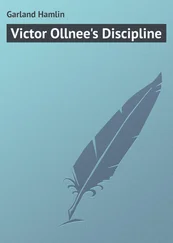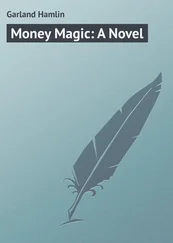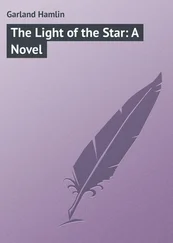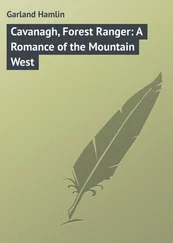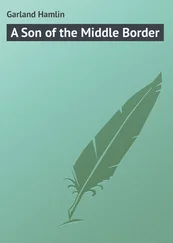Hamlin Garland - Rose of Dutcher's Coolly
Здесь есть возможность читать онлайн «Hamlin Garland - Rose of Dutcher's Coolly» — ознакомительный отрывок электронной книги совершенно бесплатно, а после прочтения отрывка купить полную версию. В некоторых случаях можно слушать аудио, скачать через торрент в формате fb2 и присутствует краткое содержание. Издательство: Иностранный паблик, Жанр: foreign_prose, на английском языке. Описание произведения, (предисловие) а так же отзывы посетителей доступны на портале библиотеки ЛибКат.
- Название:Rose of Dutcher's Coolly
- Автор:
- Издательство:Иностранный паблик
- Жанр:
- Год:неизвестен
- ISBN:нет данных
- Рейтинг книги:4 / 5. Голосов: 1
-
Избранное:Добавить в избранное
- Отзывы:
-
Ваша оценка:
- 80
- 1
- 2
- 3
- 4
- 5
Rose of Dutcher's Coolly: краткое содержание, описание и аннотация
Предлагаем к чтению аннотацию, описание, краткое содержание или предисловие (зависит от того, что написал сам автор книги «Rose of Dutcher's Coolly»). Если вы не нашли необходимую информацию о книге — напишите в комментариях, мы постараемся отыскать её.
Rose of Dutcher's Coolly — читать онлайн ознакомительный отрывок
Ниже представлен текст книги, разбитый по страницам. Система сохранения места последней прочитанной страницы, позволяет с удобством читать онлайн бесплатно книгу «Rose of Dutcher's Coolly», без необходимости каждый раз заново искать на чём Вы остановились. Поставьте закладку, и сможете в любой момент перейти на страницу, на которой закончили чтение.
Интервал:
Закладка:
Rose did not hold that Carl had any claim upon her. The incidents of two years before were lived down, both by herself and Carl, for as manhood and womanhood came to them they put away all that which they had done in the thoughtlessness of childhood. To Rose it was an unpleasant memory, because associated with her father's grief. She supposed Carl to feel in the same way about it, and so no allusion to it was ever made by any one.
But Carl was grown to be a great stalwart young fellow, with the blood and sinew of a man, and the passions of a man were developing in his rather thick head. The arm which he laid along the buggy seat was less passive and respectful of late. It clutched in upon her at times; though she shook herself angrily each time, he merely laughed.
So matters stood when she told him she was going away to school in Madison.
"That so?" he said, and not much else till the next Sunday. With all the week to think about it in, he began to ask himself in current slang, "Where do I come in?"
So the next time they drove together he tried again to tighten his arm about her while he said:
"I'll miss you, Rosie."
"So'll pap," she said.
There was a long pause, then he said: "What's the use o' going away anyhow? I thought you an' me was goin' to be married when we grew up."
She shook herself free. "We ain't grown up yet."
"I guess we won't never get our growth, then," he said with a chuckle; "you don't need that extra schoolin' any more'n I do."
They rode in silence down the beautiful valley, with the charm of early autumn lying over it.
"You mustn't go and forget me off there in Madison," he said, giving her a squeeze.
"Carl, you stop that! You mustn't do that! I'll jump out o' the buggy if you do that again!"
There was genuine anger in her voice.
"Why, it's all right, Rosie; ain't we engaged?"
"No, we're not, and we never will be, either."
There was a note in her voice that struck through even Carl's thick thought. He did not reply, but continued to dwell upon that reply until its entire meaning came to him. Then his face became pitiful to see. It was usually round and red, but now it looked long and heavy and bitter. He was so infertile of phrases he could only say:
"Then we might as well drive right back home."
"Well, you made me say it," she went on in a softer tone, being much moved by the change in his face. "I like you, Carl, but I'm not a-goin' to promise anything. I'll see when I come back, after I graduate."
They drove on. She was not much more of a talker than he, and so they rode in silence that was sullen on Carl's part. At the gate she relented a little. "Won't you come in, Carl?"
"No, I guess not," he said shortly, and drove off.
After she went in the house she felt more and more the injustice of her anger. "If he hadn't pinched me like that," she said to herself.
She went to work at her packing again, putting in things she would not possibly have any use for. As she worked the ache and weariness at her heart increased, and when they called her to supper the tears were falling again like a shower. It was a silent and miserable meal, though the doors and windows were open and the pleasant sounds of the farm-yard came in, and the red light of the setting sun shone in magically warm and mellow.
John ate slowly, his eyes fixed on his plate. Rose ate not at all and looked out of the window, with big tears rolling childishly down her cheeks. She didn't want to go at all now. Her home seemed all at once so comfortable and happy and safe!
John looked up and saw her tears, and immediately he was choked and could not eat.
"There, there! Rosie, don't cry. We'll be all right, and you'll be back almost 'fore you know it. June comes early in the summer, you know." They were both so childlike they did not consider it possible to come home before the year was up. She came around and knelt down by his side and buried her face on his knees.
"I wish I hadn't promised to go," she wailed; "I don't want to go one bit. I want to stay with you."
He understood her feeling and soothed her and diverted her, though tears would have been a relief to him.
She went with him out to the barn, and she cried over the bossies and the horses, and said good-by to them under her breath, so that her father might not hear.
When she went to bed she lay down disconsolate and miserable. O it was so hard to go, and it was hard not to go. Life was not so simple as it had seemed before. Why did this great fear rise up in her heart? Why should she have this terrible revulsion at the last moment? So she thought and thought. Her only stay in the midst of chaos was Dr. Thatcher. William De Lisle was very far away, like a cold white star.
Just as she made up her mind that she could not sleep, she heard her father call her.
"Rose, time to get up!"
Her heart contracted with a sharp spasm that almost made her scream. The time had come for action – momentous, irrevocable action, like Napoleon's embarking from Elba for France.
It was very chill and dark. She rose and groped about for a light. Her teeth chattered with cold and it seemed to her she was going to be sick. She dressed hurriedly and went down.
John and her aunt were seated at breakfast. She slipped into her seat, white and silent. It was still dark and the lighted lamps made it seem like a midnight meal.
John was strenuously cheerful. "We have to get up early if we get that seven o'clock train," he said.
"Better take some coffee anyhow," urged Mrs. Diehl.
"O, I can't eat a thing," Rose insisted.
"Don't worry her, sis," interposed John. "She'll feel like it later."
While John went to get the team Rose got on her things and walked about, uttering a little moaning sound, like a babe in delirium. It was terrible to hear her and Mrs. Diehl lost patience at last.
"Stop that fuss! Good land! anybody'd think you was goin' to die dead as a hammer, the way you take on, and after all the time we've had gettin' you ready. I declare to goodness I never see such a young'un in all my born days. I will be glad to get rid of you!"
This was good strong medicine to Rose, and she uttered no more of her grief. She punished her aunt by refusing to say good-bye at the door, which grieved John very much.
"You folks had a tiff this morning a'ready?"
It was cold and damp. The wind pushed against their faces like the touch of wet palms. The horses splashed along in pools of water, and out of the dim light the hills rose against the sky full of soft sprawling rain-clouds.
They rode in silence. Rose saw no more of the splendid visions of the world. It was all dark and rainy ahead. Home, and peace, and comfort were all behind her. She was so miserable it seemed as if she must cry out, but her aunt's contemptuous words helped her to silence.
John talked a little about the trains on the road, and the weather, but talk was an effort to him also. As he rode he thought of it all again. He felt as if he were losing his heart, but he did not waver.
He helped her on the cars and then stooped and hugged her hard without kissing her, and so stumbled out again, while she sat white and rigid, breathing hard.
The sun came out after a little, and covered the earth with a glory that found its way into the girl's heart. She ceased to sob, and the ache passed out of her throat, although the shadow still hung in her eyes.
The car interested her. It seemed a palace and of enormous size. She figured out the number of people it would hold, and wondered how the seats which were turned the other way came to be so. The car was mainly occupied by men in careless clothing. Everybody seemed sleepy and unkempt. She wondered where they all came from, and so speculating, she lost something of her poignant sorrow.
Читать дальшеИнтервал:
Закладка:
Похожие книги на «Rose of Dutcher's Coolly»
Представляем Вашему вниманию похожие книги на «Rose of Dutcher's Coolly» списком для выбора. Мы отобрали схожую по названию и смыслу литературу в надежде предоставить читателям больше вариантов отыскать новые, интересные, ещё непрочитанные произведения.
Обсуждение, отзывы о книге «Rose of Dutcher's Coolly» и просто собственные мнения читателей. Оставьте ваши комментарии, напишите, что Вы думаете о произведении, его смысле или главных героях. Укажите что конкретно понравилось, а что нет, и почему Вы так считаете.
